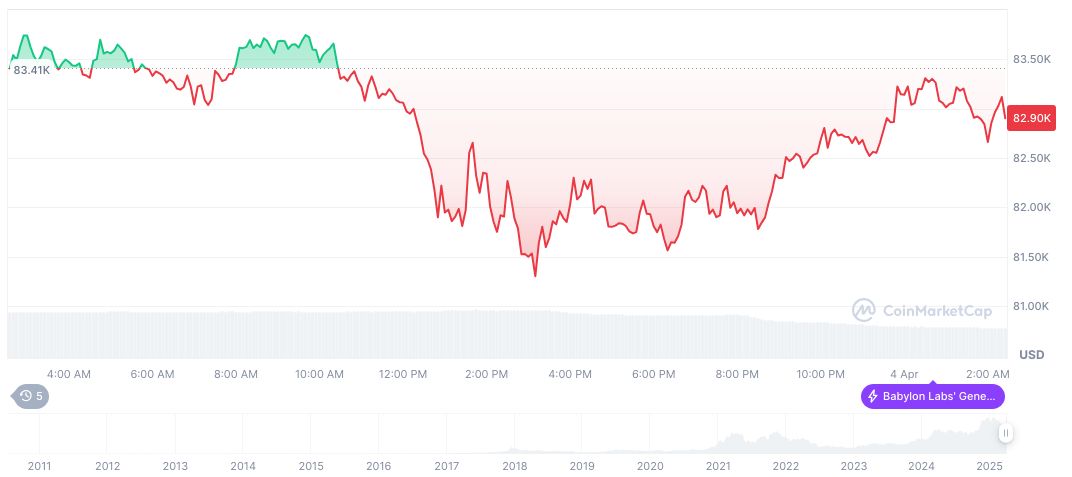- Main event, leadership changes, market impact, financial shifts, or expert insights.
- New tariffs announced by U.S. President Trump.
- Major stock indexes and tech companies affected.
On April 4, 2025, U.S. President Donald Trump announced new tariffs, resulting in significant declines in major stock indexes. The Dow plunged 4%, while Nasdaq and S&P 500 also saw sharp decreases.
This decision intensifies global market volatility by focusing on trade imbalances, affecting technology and financial sectors significantly.
U.S. Tariffs Trigger 4% Dow Decline
President Donald Trump introduced tariffs on all U.S. partners, sparking massive market sell-offs. The policy, targeting unfair trade, raised concerns among investors and industries worldwide.
The new tariffs have sparked speculation about inflation and growth. Such measures have led to immediate tech and finance sector shifts, with heavy losses observed across multiple companies. Each trading day now serves as a critical indicator of ongoing market sentiment.
Daniel Morris, Market Strategist at BNP Paribas Asset Management, expressed his view that the tariffs are “worse than most investors expected,” highlighting concerns over inflation and economic stagnation.
The financial world reacted strongly to these changes. JPMorgan Chase’s stock dipped 5%, while Apple, Amazon, and Tesla saw drops exceeding 4%. Prominent figures highlight negotiation windows for tariff revisions but remain divided on long-term effects.
Bitcoin Surges Amid Market Chaos
Did you know? The volatility index spiked 40%, a peak echoing levels seen during early COVID-19 economic jitters in 2020.
Bitcoin (BTC) stands at $82,981.55, showing a 1.07% rise over 24 hours according to CoinMarketCap. With a market cap of $1.65 trillion and circulation surpassing 19.8 million, BTC’s dominance is 61.83%. However, its value has declined 15.23% over 90 days.

Coincu research projects possible regulatory effects due to mounting geopolitical tensions. Historical trade disruptions suggest a recalibration among tech and finance sectors, emphasizing the need for strategic asset allocations. Ripple-effects on crypto markets could necessitate fiscal policy adjustments globally.























